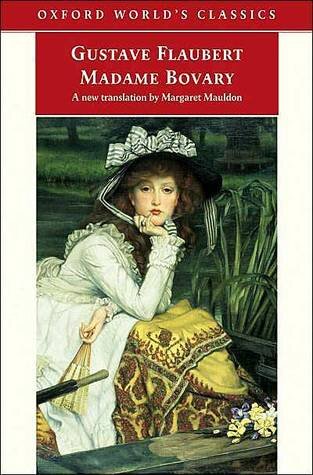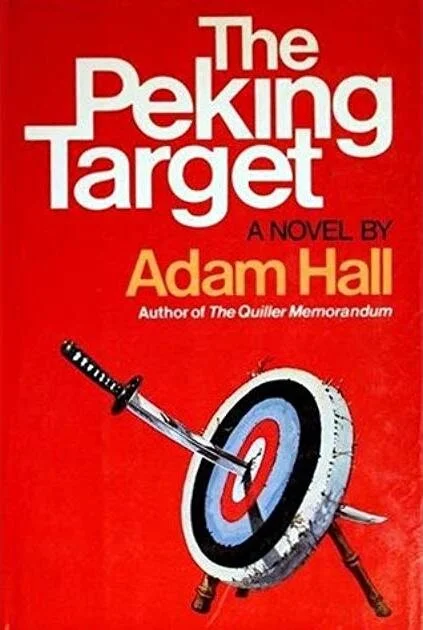A Tale of Two Alliterators: Flaubert, Trevor, and The Lost Art of Beautiful Prose
Le mot juste.
The just word. The perfect word. The right word at the right time. The phrase was the guiding principle for one of history's greatest novelists, Gustave Flaubert. While Flaubert is recognized for his commitment to this concept (not to mention his influence on literary realism), little is written about what the Frenchman meant by le mot juste.
Doesn't every author seek the right word?
Yes and no. Every author searches for the word which conveys the correct meaning, but few spend the extra time sifting through all possible choices to find a word that also adds to the poetry of the sentence.
Language, in a very real sense, is like music: it carries a beat, meter, sounds, and overall harmony (or disharmony). If crafted carefully, each sentence brings to bear the strings and horns and percussion, so that the paragraph as a whole operates as an orchestra, the chapter as a symphony. Who, then, is the peer of Shakespeare? Is it not Mozart, Bach, or Chopin?
Great writers, like Flaubert, spend endless hours pouring over perfectly constructed sentences to bring them to life. To add majesty. To add magic. Yes, to add even glamour.
But how? you ask.
I just finished reading Flaubert's classic, Madame Bovary (1857), and his painstaking search for le mot juste can be seen, and explained, in every sentence. Ironically enough, I also just finished a largely unknown work, by a somewhat obscure author writing more than a century later, and the similarity of sentence structure is striking.
Consider these two passages:
"By the time he'd seen me and made his way through the crowd my mood had swung in the opposite direction to something like anger; it happens like that when things are chancy: You suddenly wonder where your nerves have gone, and there they are all the time on the roller coaster."
"The warm room, with its discreet carpet, its gay ornaments, and its calm light seemed made for the intimacies of passion. The curtain-rods ending in arrows, their brass pegs, and the great balls of the fire-dogs shone suddenly when the sun came in."
Both passages are beautiful, and roll gently off the tongue. They should, as each author carefully selected each word for assonance (similar vowel sounds) and consonance (repeating or similar sounding consonants, as in red river or calm chaos), an art largely lost today.
Re-read the first sentence and notice the assonance of four long "i" sounds ("time" and "like," twice each), six long "e" sounds (seen, me, something, things, chancy, suddenly), five "er" sounds (anger, wonder, there, roller, coaster), and the similar sounds of "swung," "something," and "wonder." Now catch the six times the consonant "d" occurs.
Assonance and consonance, of course, are like garlic: a little adds delicious flavor; too much and the meal is ruined. Reading that passage the first time, you don't notice the reason for its beauty, simplicity, and flow. A second read, though, catching the recurring sounds, and the source of enjoyment becomes clear.
Now to the second passage. The emphasized consonant of the first sentence is "t" (occuring six times), while "r" dominates the second (occurring seven times). On the assonance side, notice the similar sounds of "warm" and "ornaments," followed by the transition to sounds of "n" (utilizing assonance and consonance): passion, curtain, ending, in, shone, suddenly, sun, and in. Finally, notice the assonance of "discreet" and "seemed."
Unlike the first passage, however, the garlic stands out. Why was the word "discreet" chosen? Is carpet generally (or ever) described as discreet? The word seems misplaced; carpet is new, fine, worn, and many other things, but not discreet. Second, we don't usually think of curtain-rods as shining. In both instances, the words were selected for their assonance or consonance: "discreet" to match the long "e" sound of "seemed," "curtain-rods" to carry the repeating "r."
This second passage, where it seems the author is overdoing it, is from Madame Bovary (page 202). While Flaubert's prose is beautiful throughout, he often sacrifices flow and pace at the alter of assonance/consonance. In many instances, descriptions go on ad nauseum, apparently because Flaubert simply enjoyed the construction of lavish prose. Even with that demerit, though, Flaubert more than deserves his place as one of history's greatest writers, and his work is a fine tribute to the concept of le mot juste.
The first passage, by the way, is from Elleston Trevor's (writing as Adam Hall) The Peking Target (page 95). For my money, Trevor is a better writer than Flaubert, blasphemous as that sounds. Trevor's prose is as beautiful as the Frenchman's, but is tighter, and more subtle. In addition, Trevor gives the reader all the benefits of a thriller: pace, cliffhangers, mystery, suspense, intrigue, reversals, and twists.
But one thing is certain regarding both authors: Flaubert and Trevor labored at length with each word, each sentence, each page, and each novel to give readers a symphony they'd never forget.
So writers, do not grow weary in your search for le mot juste.
Mozart is listening.


